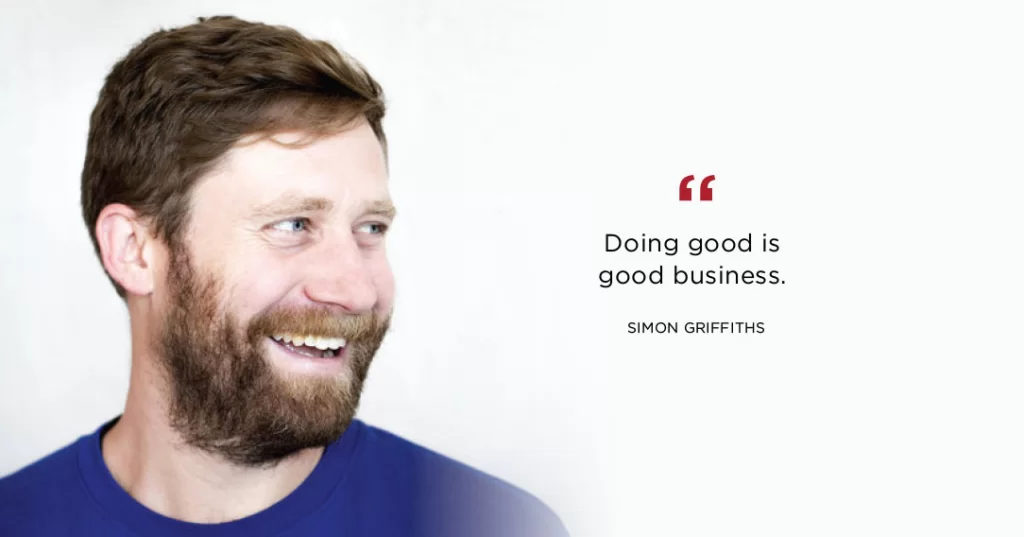What we can learn from going viral thanks to a virus | Simon Griffiths | Resilience

The Show Must Go on – Business resilience in the time of COVID-19
At ICMI – we are fortunate to have a number of Australia’s best business thinkers in our stable. Many of these speakers specialise in dealing with not just disruptive technology, but the wider economic shocks organisations must deal with and adapt to with little, or no notice at all. The current health crisis resulting from the Coronavirus presents several challenges in both protecting our staff’s health today, and protecting their income tomorrow as business realities set in. With this in mind, we asked our best thinkers on some of the actions businesses can take now to ride the shock and minimise the impact.
Simon Griffiths is the co-founder and CEO of Who Gives a Crap, a profit-for-purpose toilet paper company that uses 50% of its profits to build toilets in the developing world. The virus helped his company go viral and taught him some valuable lessons that transcend every business.
Here’s what he had to say:
We’re one of a handful of businesses that can say the Coronavirus has resulted in unprecedented demand for our product. To be clear, we’re not celebrating this fact, but there are some things we can all learn from it.
Our sales growth in March has been extreme – more extreme than what would come from just selling something counter-cyclical, like toilet paper. We saw a 1100% increase in daily sales in Australia. At our peak, just before we marked our online store as sold out, we were selling 27 rolls of toilet paper every second. When we look at our sales data in March, we can see that almost all of our sales growth has come from word of mouth and social media – in other words, the virus helped us to go viral. Looking at the tens of thousands of social media mentions that we’ve had in the last two weeks, it’s clear that we’ve done three things really well for the last few years that helped us to go viral this month. Here’s what they are:
Doing good is good business
Our toilet paper is made with recycled toilet paper and bamboo, and we donate 50% of our profits to help build toilets in the developing world. Since getting started 6.5 years ago, we’ve been able to donate $2.5 million dollars. When we look at the social media mentions that we’ve had this month, our environmental impact and donations pop up again and again – they’re something that our customers are proud of, which makes them more comfortable sharing our company with their friends and on social media.
Honesty is the best policy
This last fortnight has been a challenging one – when you increase sales by 1100% almost overnight, things will almost certainly go wrong! We’ve been open and honest with our customers about the things that aren’t going well, posting updates to social media and pro-actively contacting thousands of customers with deliveries that might be delayed. When we do this well, our customers see that we’re just a group of humans genuinely trying to make the world a better place. That builds a level of trust that’s incredibly abnormal for any company, let alone a toilet paper company. As a result, our customers start jumping in and responding to other customers queries on social media, and sharing our social posts on their own accounts, helping to amplify our messages.
Be in the business of delight
While many would view us as a toilet paper business, we see ourselves as being in the delight business. So, when we sold out of toilet paper, instead of cancelling all of our advertising we doubled down and bought a full-page ad in The Age encouraging people to use the newspaper in the case of a toilet paper emergency. Although we had no toilet paper (sorry!) we still had something to offer to our customers. Based on how much the ad was shared online, the light-hearted tone was very much appreciated in the midst of a challenging time.
This article is part of our blog series on business resilience.
Find out more about Simon